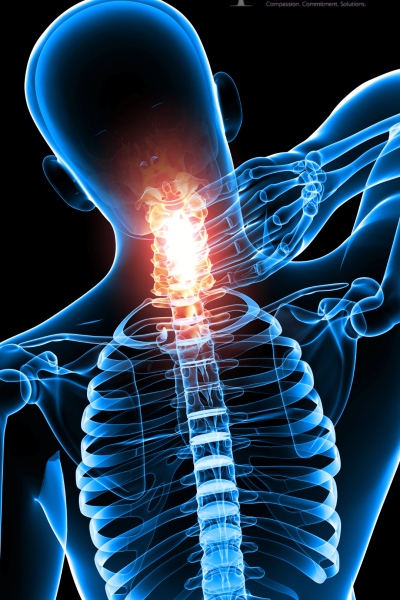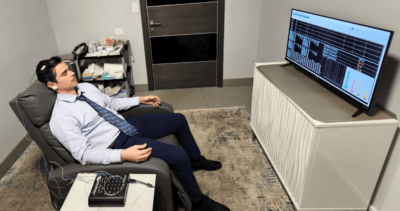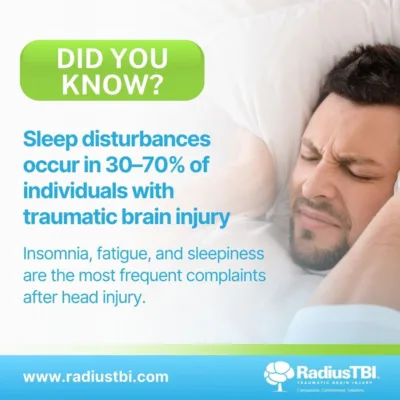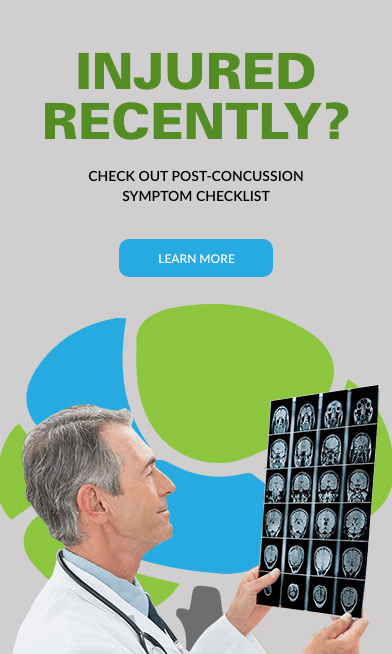Specialized Care for Post-Concussion Syndrome Symptoms, Including Neck Pain, Shoulder Pain & Headaches
Understanding Neck Pain Treatment Options at Radius TBI
Post-concussion syndrome can manifest in various ways, including symptoms such as neck pain, shoulder pain, and headaches. These symptoms can be interconnected and arise after a traumatic brain injury.
Research shows that neck pain and headaches are common after a concussion, and they may be related to physical damage, vision or vestibular issues, autonomic nervous system dysfunction, or cervicogenic pain.
Understanding Post-Concussion Syndrome (PCS):
Post-Concussion Syndrome is a constellation of symptoms that persist after a traumatic brain injury or concussion has occurred. It affects various aspects of an individual's life and can manifest in a range of physical, cognitive, and emotional disturbances. While not everyone who sustains a concussion develops PCS, for some, the symptoms can be prolonged and impact their daily functioning.
The Physical Manifestations:
- Neck Pain: After a traumatic brain injury, the forces that impact the head can also cause strain and injury to the neck muscles, ligaments, and nerves. Neck pain is a common occurrence in PCS due to these associated injuries.
- Shoulder Pain: During a traumatic event, individuals may sustain injuries to their shoulders, particularly if they fall or experience a direct impact. Additionally, compensatory postures adopted to protect the head during the injury can lead to shoulder strain and discomfort.
- Headache: Headaches are one of the hallmark symptoms of PCS. The exact mechanisms causing these headaches are not fully understood, but they may be related to changes in brain chemistry, blood flow, and pain perception pathways.
- Dizziness:Dizziness or a sensation of being lightheaded is another common symptom experienced by individuals with PCS. This dizziness may be triggered or worsened by head movements and can significantly impact one's balance and coordination.
Cognitive Challenges:
- Concentration and Memory Issues:One of the most frustrating aspects of PCS is the cognitive challenges it presents. Individuals may struggle with concentration, finding it difficult to focus on tasks or conversations. Additionally, short-term memory issues can lead to forgetfulness and difficulty retaining new information.
The connection between PCS, neck pain, shoulder pain, headaches, dizziness, and cognitive challenges is intricate and multifaceted:
The connection between post-concussion syndrome and these physical symptoms is not a simple cause-and-effect relationship. Rather, it involves a complex interplay of various factors:
The Complex Interplay:
- Brain-Body Communication:The brain and the body maintain constant communication through the nervous system. Disruptions in brain function caused by the initial TBI can lead to altered nerve signaling, which may manifest as pain and discomfort in the neck and shoulder regions.
- Muscle Imbalances and Postural Changes:Following a traumatic brain injury, individuals may adopt altered postures or develop muscle imbalances as a protective mechanism. These changes can create additional strain on the neck and shoulder muscles, leading to pain and discomfort.
- Sensory Sensitivity:The brain's sensory processing can become hypersensitive after a TBI, making individuals more susceptible to stimuli, including pain signals. This heightened sensitivity can contribute to the experience of headaches and worsen neck and shoulder pain.
- Neurological Disruptions:The brain's intricate network is susceptible to damage during a TBI. Such damage can lead to neurological disruptions, affecting various regions responsible for cognitive functions, balance, and pain perception.
- Shared Neural Pathways:The regions of the brain responsible for processing pain signals, such as the thalamus, overlap with those involved in memory and concentration, like the prefrontal cortex. Disruptions in one area may consequently affect the others.
- Inflammation and Chemical Changes:After a TBI, the brain may experience inflammation and chemical imbalances that can further contribute to headaches, dizziness, and cognitive challenges.
Post-concussion syndrome is a complex condition that can lead to a range of physical symptoms, including neck pain, shoulder pain, and headaches. Understanding the intricate connection between PCS and these symptoms is vital for effective management and treatment.

Latest News & Updates
Blogs

QEEG Brain Map Interpretation
In the world of neuroscience, one of the advanced tools used to understand brain function is the Quantitative Electroencephalogram (QEEG), often referred to as brain mapping. But who interprets these intricate brain maps, and why is their expertise crucial?

Meet Our No.1 Best Neuropsychologist in Tampa, FL Location
At Radius TBI, we pride ourselves on providing exceptional care for individuals suffering from traumatic brain injuries (TBI) and concussions. Our integrated medical team in Tampa, FL, includes some of the most respected and experienced professionals in the field, ensuring

Sleep Disturbance
Did you know? Dealing with a traumatic brain injury (TBI) often means navigating a range of complications, one of the most prevalent being sleep disturbances. Surprisingly, 30-70% of individuals with a TBI experience some form of sleep disruption according to





